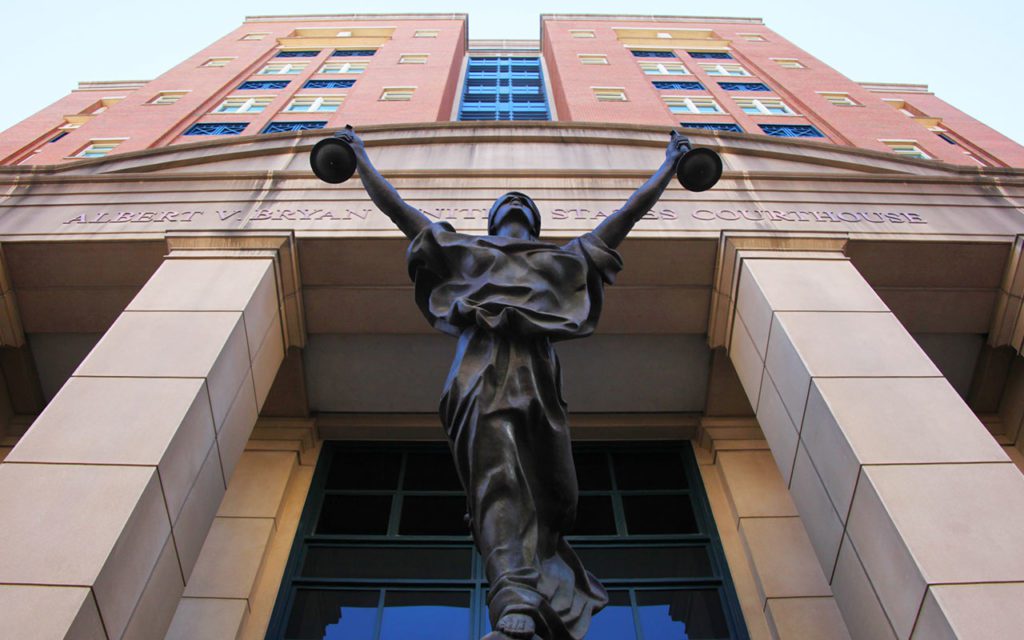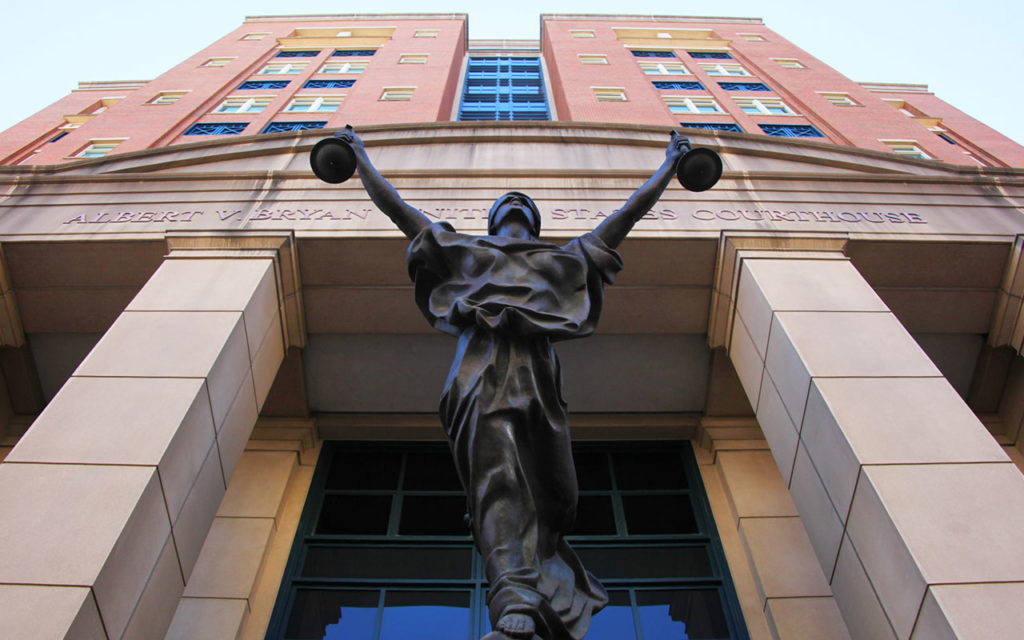Local Counsel Requirements in the Eastern District of Virginia / EDVA


Nicknamed the “Rocket Docket” for its outstanding efficiency, civil litigation in the Eastern District of Virginia (EDVA) averages only 11-13 months. That’s nearly three times faster than many federal and state tribunals. The Department of Defense, NASA, Naval Station Norfolk, and the United States Patent & Trademark Office (USPTO) are all headquartered in the EDVA, making it a favored district for time-sensitive security and patent litigation. Further, many multi-national corporations often elect to litigate in the EDVA for its cost-saving efficiency. With little room for procedural inefficiency, out-of-state attorneys litigating in the EDVA must partner with local counsel throughout the litigation. This is true for most federal districts, but hiring local counsel in the EDVA is not just a formality.
The Virginia Bar Exam is arguably the nation’s most challenging, and federal litigation often requires considerable knowledge of the forum state’s substantive law. Admission to practice in the EDVA requires Virginia Bar membership, one year of active practice, and in-person swearing-in. Access to a federal jurisdiction outside Virginia is not sufficient. Take advantage of McClanahan Powers, PLLC’s Virginia local counsel consultation, by calling (703) 520-1326 or contacting us online. It may make or break your case.
Litigating in the Rocket Docket
The EDVA prides itself on the just and speedy adjudication of litigation and the historic legal professionalism of its forum state. Out-of-state practitioners are often unprepared for what this means. EDVA scheduling orders are strictly adhered to. Counsel must formally move for an adjournment or extension of time and only with good cause. If you have an upcoming hearing, trial, or deadline in the EDVA, it’s seldom extended, absent exceptional legal or personal circumstances. The following are not considered “good cause” for postponement in the EDVA:
- Agreement of the parties
- Convenience
- Scheduling Conflicts
Local counsel may not appear at a hearing to request postponement absent exceptional circumstances. In such cases, local counsel is often expected to proceed on the merits without lead counsel. Therefore, hiring local counsel with experience litigating throughout the EDVA is essential to your litigation success and reputation before the Court.
Further, nearly half of litigation commenced in the EDVA is filed according to federal diversity jurisdiction. Virginia substantive law applies to most diversity-based litigation in the EDVA, and practitioners admitted to practice pro hoc vice are subject to the local rules of professional conduct governing Virginia attorneys. Attorneys who are not members are the Virginia Bar are also prohibited from advising clients on complex aspects of Virginia law. Partnering with Virginia counsel is not only required for practicing in the EDVA, but it’s also essential for many out-of-state attorneys litigating under Virginia law.
The Federal and EDVA’s Rules Governing Local Counsel
EDVA Local Rule 83.1 requires all foreign attorneys, including most federal government attorneys, to partner with local private counsel qualified to practice in the EDVA before appearing in a case. Foreign attorneys are only admissible pro hoc vice on a written motion submitted by a member of the EDVA, and local private counsel is required to accompany the foreign attorney during all appearances in the EDVA. This includes hearings, pretrials, and trials. Local counsel is an active part of the litigation as the foreign attorney. This is purposeful. The EDVA found that foreign attorneys lacking knowledge of its local rules were congesting its docket and affecting the administration of speedy justice. Local attorneys must guide foreign practitioners through the complex procedural requirements and local expectations of EDVA judges.
Signature and Pleading Requirements for Local Counsel
Importantly, EDVA Local Rule 83.1(D)(3) and 83.1(F) require local counsel’s signature on every pleading, notice, motion, or other paper filed in a case, and local counsel acts as the registered agent for all official notifications during litigation. Local Rule 83.1(D)(3) even states that local counsel must-have “such authority that the Court can deal with the attorney alone in all matters connected with the case,” and Local Rule 83.1(F) states that “[a]ny counsel who joins in a pleading, motion, or other paper filed with the Court will be held accountable for the case by the Court.” This isn’t just a local rule of accountability. It reiterates the Federal Rule of Civil Procedure 11’s requirements upon signatories. Rule 11 states that any attorney who signs a pleading, motion, or other paper actually “certifies to the best of the person’s knowledge, information, and belief, formed after an inquiry reasonable under the circumstances:”
- That the paper’s purpose is proper and the motion is not being filed to harass, delay, or increase the cost of litigation
- The claims, defenses, and legal arguments presented in the papers are meritorious under existing law, or there is a good faith basis for requesting a change or modification to the existing law
- Any factual contentions or denials of fact in the paper have evidentiary support or are likely to have evidentiary support following discovery.
How many attorneys, especially local signatories, can confidently say they investigated the above to the best of their knowledge? Not many. Most local attorneys simply sign and file the papers submitted by co-counsel without giving Rule 11 a second thought. This is sanctionable conduct under Rule 11 and the EDVA’s local rules. Time is of the essence in the EDVA, so expect the Court to contact and converse with local counsel if lead counsel cannot be reached. Local counsel should also expect questions if foreign counsel’s frivolous arguments, defenses, pleadings, or motions are inordinately burdening its clerks and congesting its docket.
Call McClanahan Powers Today to Partner with Experienced Local Counsel in Virginia
Foreign attorneys in need of local counsel for the EDVA should consult with an experienced Virginia federal practitioner at McClanahan Powers, PLLC. Our Falls Church, Virginia, federal lawyers are familiar with litigating in the Rocket Docket and the professionalism expected of local counsel in the EDVA. So whether you’re looking for local counsel, a Virginia co-counsel, or an experienced EDVA litigator, contact us today online or by calling (703) 520-1326 for your consultation.